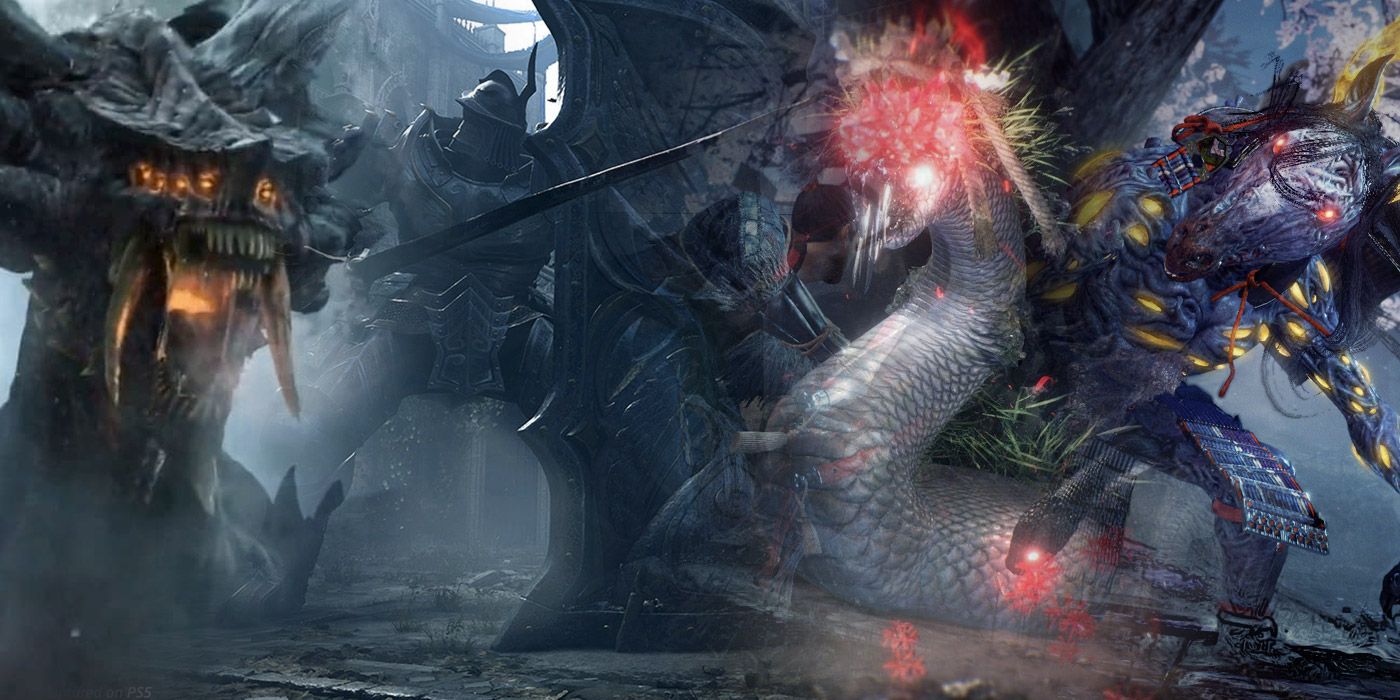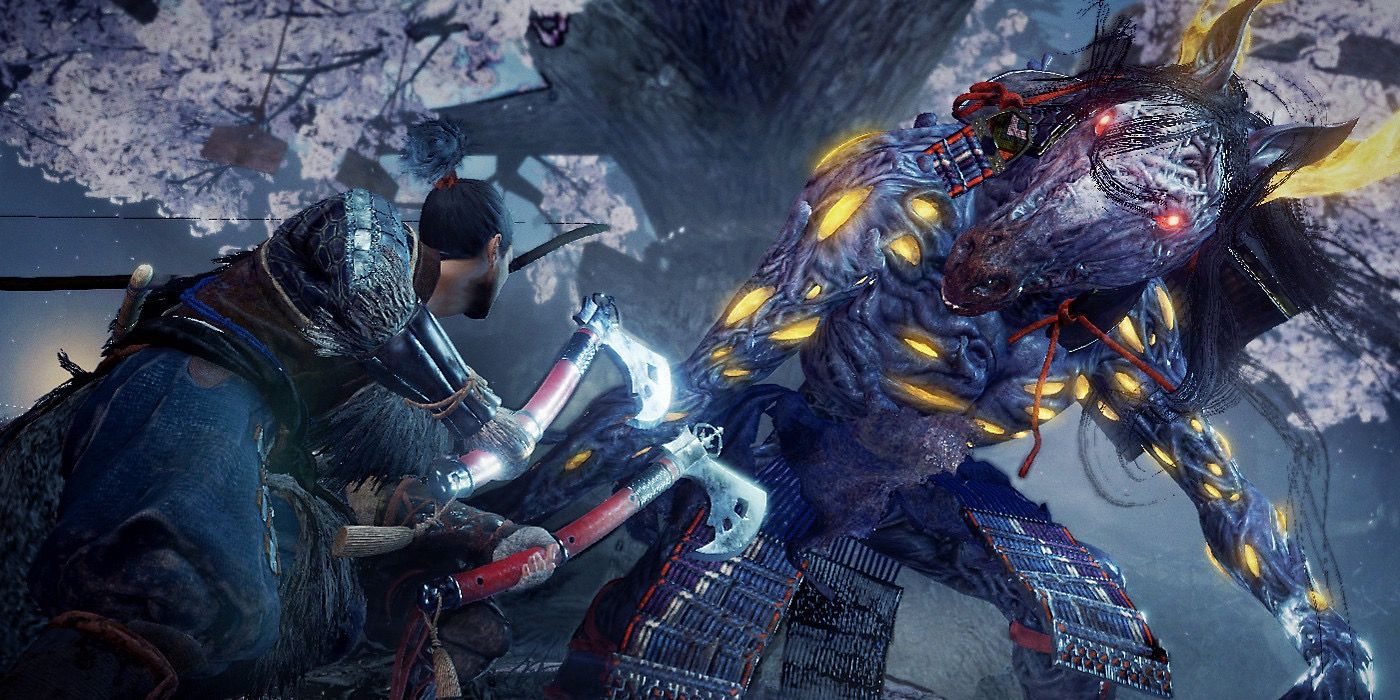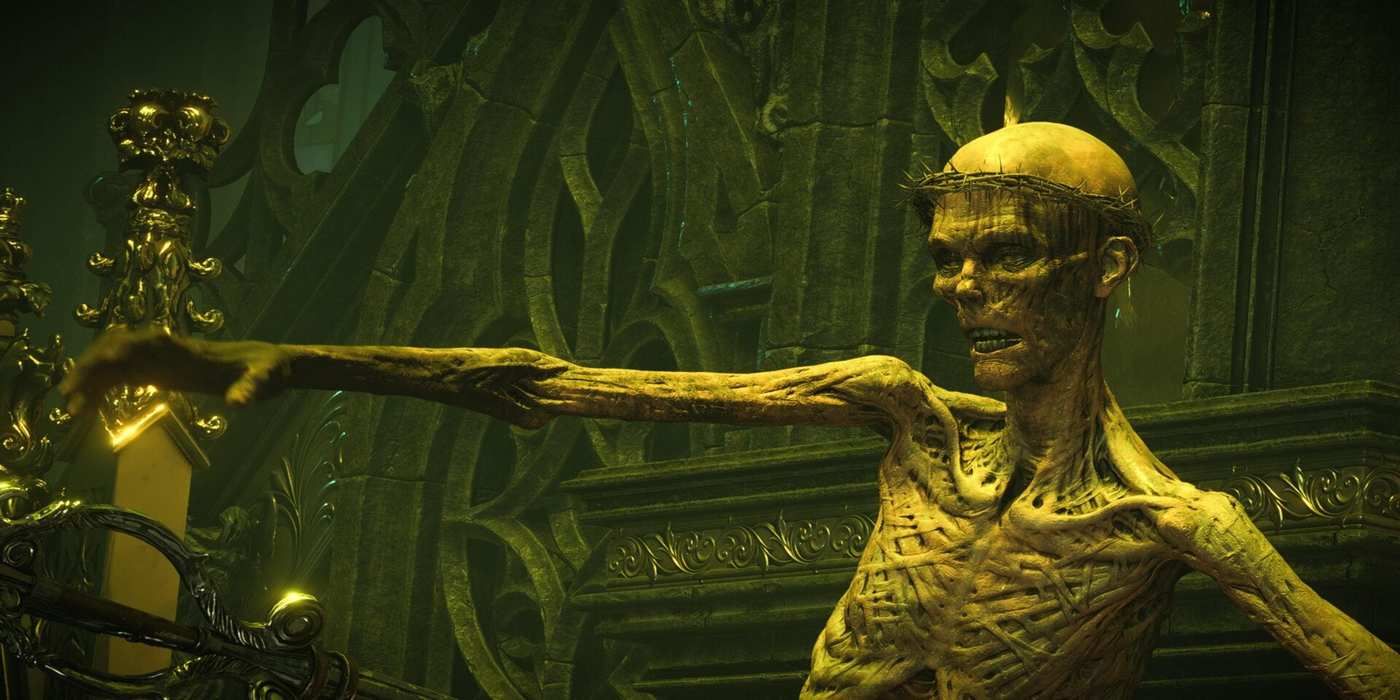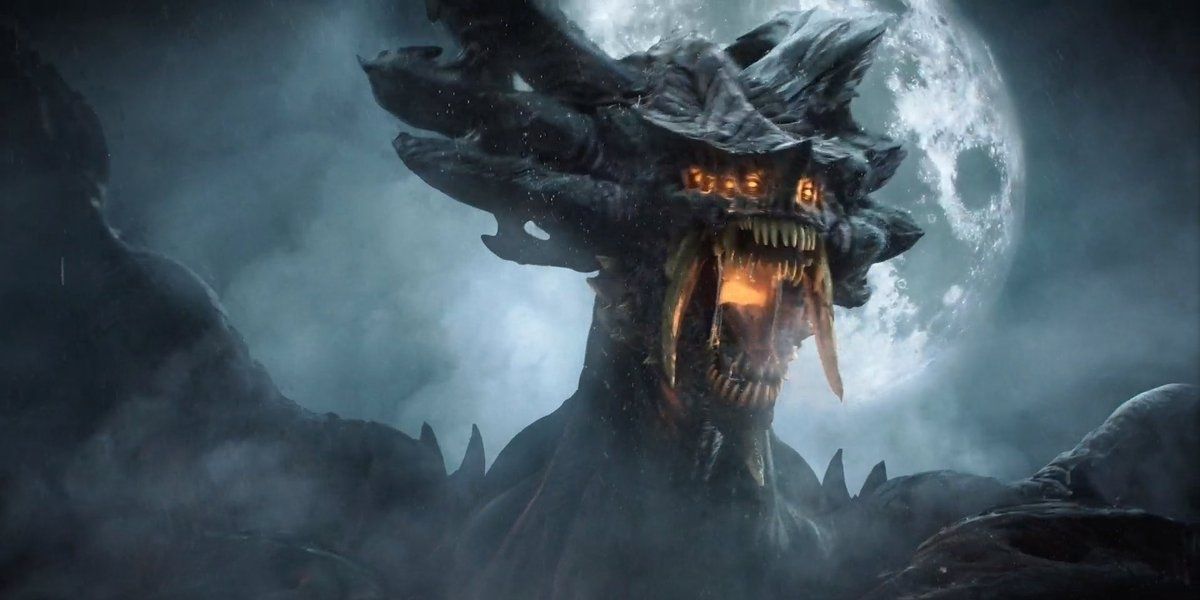Comparing Nioh 2's Bosses to Demon's Souls | Game Rant

The Demon's Souls remake for PlayStation 5 introduced the masochistic franchise to a whole new audience, but also served as a reminder for longtime fans of how far the series has come. Now that Nioh 2: Complete Edition is available on the PlayStation 5 as well, fans of the Soulslike genre may find it interesting how the boss fights of these games make two seemingly similar titles feel entirely different.
The design philosophies of Demon's Souls and Nioh 2 can best be seen in its boss fights. From an outside perspective, gameplay might look nearly identical. The way players, dodge, defend, dish out damage with quick or heavy attacks, and scurry off to heal up with a potion or two really aren't that different. Jumping between games, however, players should almost immediately notice the changes in how the two control, directly affecting the ways players can approach and effectively defeat bosses.

Arguably, one of the biggest differences between Demon's Souls and Nioh 2 is the gameplay speed. The first boss of each game, Demon's Souls' Phalanx and Nioh 2's Mezuki, are the best examples of how different these games are and serve as a proper introduction of what players can expect. The Phalanx is a large slime monster, comprised of smaller, weaponized slime that will attack when players are in range.
It isn't an easy boss by any means, but players can easily distance themselves thanks to its slow movement speed. Mezuki, on the other hand, is practically the opposite. This horse-headed yokai will not only throw long ranged attacks from a distance, but it will charge itself at players and make continuous swipes to try and break the players' guard. It's an entirely different feeling from Demon's Souls' Phalanx.
These boss fights aren't only different from a gameplay perspective either. The tones that Phalanx and Mezuki deliver to their respective games are just as different. When players see Phalanx for the first time, there's a relatively good chance that they're going to be wiped out. It has no visible weaknesses and melee attacks (which are likely the player's only form of offense at this point), aren't all that effective. Unless players are incredibly patient or creative with their items, Phalanx can bring about an air of hopelessness, and in the end, that's the job of Demon's Souls' many bosses.
Almost landing on the opposite end of the spectrum, Nioh 2's Mezuki exists mostly to show players just how powerful they can be. While this yokai can just as easily cut down unprepared players, Mezuki's weak points are clearly placed on display in order to teach players how to exploit them, as most early game bosses do. Using abilities like the burst counter and yokai shift, players can not only react in accordance to enemy attacks, but they can actually control the flow of the fight. As the difficulty ramps up in Nioh 2, weaknesses definitely become harder to take advantage of. At the same time though, players become more experienced and acquire new skills which will continue to help them tip the scales.

Unlike the Souls series, the narrative of Nioh 2 dictates the majority of its boss battles. This results in a lot of Nioh 2's fights being against human enemies, ones with abilities similar to the player. None serve as a better example of this than Saito Yoshitatsu. As the player character's twin, Saito Yoshitatsu carries whichever two guardian spirits that player didn't choose at the beginning of the game, allowing them to use similar yokai techniques and transformations as well. Compared to the game's yokai bosses, these fights feel like much more intimate duels where both sides are bound to the same mechanics and skills like parrying play more of a role, changing things up a bit.
The fight against Demon's Souls' Old Monk is probably the closest to any of Nioh 2's boss fights. It's one of the only times that the player can be on an equal playing field against the boss, if they're lucky anyway. The Old Monk can be a set AI phantom, but if the player's world happens to be invaded before reaching a certain point, the invading player will serve as the final boss. This could potentially mean facing off against an over-leveled enemy that can't be defeated alone. While Nioh 2 players can request to fight an AI controlled phantom of another player, they never have to worry about an actual player standing in the way of making progress.

Like the first bosses, Demon's Souls' Dragon God and Nioh 2's Kamaitachi couldn't be further apart in their designs. In many ways, the Dragon God is less of a boss fight and more of a trial for the players. In order to do any damage, players need to locate and use the various ballistae before dealing the final blow themselves. Without the help of the ballistae, the towering Dragon God would be an invincible enemy. There's nothing the player can do besides hide behind pillars from its fatal attacks. It doubles down on the helpless aspect that earlier Demon's Souls bosses work to create, and there's no boss like it found in Nioh 2.
If the Kamaitachi were to somehow make its way into Demon's Souls, it would likely break the entire game. Even by Nioh 2's standards, this ferret yokai is incredibly fast and its agile attacks make it look and feel like something straight out of the Monster Hunter series. Unlike many of the Demon's Souls encounters, there isn't much for players to "figure out" with this battle. To beat the Kamaitachi, players need to learn the enemy's movements, react quickly, and time their own attacks. It's a test of player skill typically found in traditional action games, a genre Team Ninja is very familiar with.
Though they're both Soulslike games, the intention behind Nioh 2 and Demon's Souls' bosses dramatically alter the way these titles will likely make players feel. Demon's Souls tries to never let players feel as though they're in charge. Even when victory is achieved, it will often feel more like survival rather than a decisive win. On the other hand, Nioh 2 allows players to face off against those same seemingly impossible odds and completely turn things around. Neither approach at the genre is wrong and both do a masterful job at appealing to each fantasy.
Nioh 2 is available now for PC, PS4, and PS5.

Post a Comment